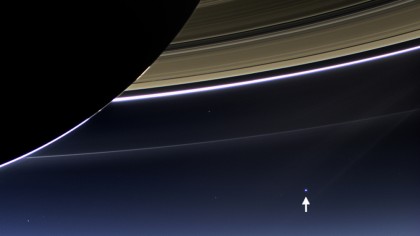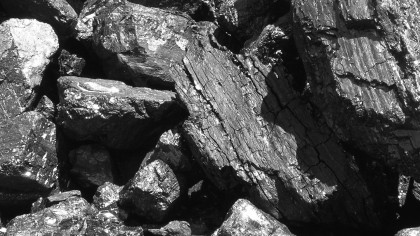Cheating death? That's science play
And why that distant blue dot is kinda interesting

Sign up for breaking news, reviews, opinion, top tech deals, and more.
You are now subscribed
Your newsletter sign-up was successful
This Week in Science our collective health gets a possible boost because we might have found a way to actually cheat death, as well as a new weapon against the scourge of Anthrax and MRSA to stop us dying in the first place.
If that wasn't enough we've also gotten an eyeful of Earth from Saturn, plus we've developed carbon dioxide batteries that'll produce power from our waste gases without further wrecking the planet. All that and more in another week of exciting scientific progress.
We may have a new weapon against the superbugs that can even kill Anthrax

Researchers from California have discovered a novel antibiotic naturally secreted by a marine-dwelling member of the Streptomyces family of bacteria. The compound can surprisingly succeed where everything else fails, killing both MRSA and Anthrax.
Anthracimycin, as the new compound is called, could be refined into a viable antibiotic for our war against superbugs and other anti-biotic resistant species of bacteria. Discoveries of truly novel antibiotic chemicals such as anthracimycin are few and far between, ramming home how much of a resource the un-explored ocean depths could be, with their ecologically and chemically distinct environments and species. [Angewandte Chemie]
It looks like your Y chromosome isn't the be-all and end-all its manliness was cracked up to be
It was thought for many years, ever since we determined that there were two types of chromosomes that dictated sex in mammals, that the Y chromosome was solely responsible for all male-specific characteristics. That's because it's the one that all males have but females possess. It turns out, that's not quite true.
It seems the X chromosome leads a double life. While present in a female, a whole series of genes contained within it lay dormant. But when present in a male in an XY pairing, the swath of genes is activated, and play important roles in all sorts of male-specific features, like the development of sperm. It also seems that these genes are some of the most recently evolved since the diversion of mammal species. Now that we know human evolution has focussed, at least in part, on the X chromosome, it's time we discovered what this library of unique genes actually do, as they could play an important role in both body function and disease. [Nature]
This tiny blue speck is Earth, all the way from Saturn

NASA's released this incredible image from its Cassini spacecraft that shows the Earth and if you squint a lot, the Moon, all the way from Saturn.
Sign up for breaking news, reviews, opinion, top tech deals, and more.
Cassini was in the process of capturing a detailed portrait mosaic of Saturn, which allows astrophysicists studying the planet's beautiful rings a better view of the more diffuse or faint ones though backlighting by the Sun. Earth just happened to photobomb the shot. It just goes to show how insignificant out little planet is in the whole grand scheme of things. [NASA]
Carbon dioxide batteries? Now why didn't I think of that?

Coal and gas power stations, as well as a load of other industrial burning systems produce a load of CO2. It's a by-product we currently don't really have a use for, and which contributes to climate change. But now scientists have come up with an ingenious use for it that'll produce even more electricity without spitting out any more carbon.
The system essentially uses the carbon dioxide to create bicarbonate ions, which are produced when CO2 is bubbled through water. The ions are combined into what is essentially an electrochemical cell, or a two-stage battery. Combined with hydrogen ions, you get a potential difference when the bicarbonate ions are created in the water, driving the ions to their respective electrodes. Once the electrodes are saturated, air-bubbled water can then be pumped through the system to release the potential energy and produce electricity. By alternating the two stages of the process you have the potential to generate vast amounts of electricity without adding any more carbon into the atmosphere, from what is essentially waste gas. [ESTL]